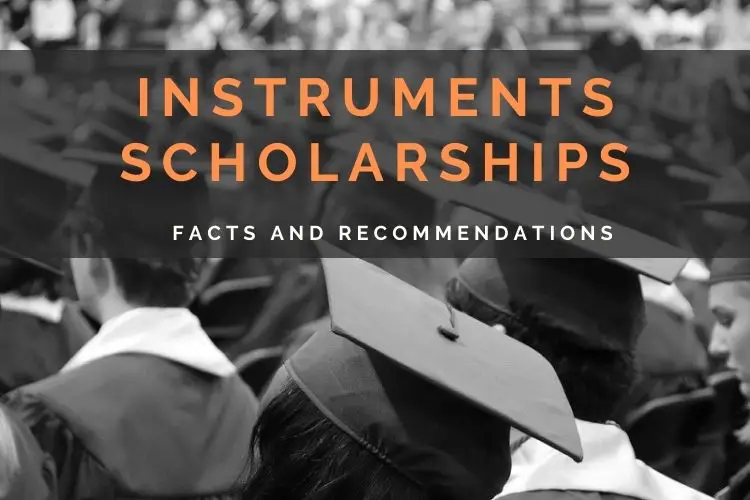College is prohibitively expensive for most Americans, with total student debt soaring by 107% over the 2009-2019 decade. This has increasingly led students and parents across the country to seek out any opportunities to find scholarships.
Luckily, there are countless scholarships out there, provided that your involvement in extracurricular activities is strategic.
Band instrument scholarships are a clear example of how a calculated approach throughout a student’s early school career yields rewarding results.
In short, the popularity of the instrument in schools determines the availability of scholarships. If few students play an instrument, competition for a relatively set amount of scholarship money will be less severe.
Colleges have a harder time finding qualified candidates to fill seats in their marching bands, jazz ensembles, or music programs and will be more willing to shell out recruitment money.
Less Competitive Instruments for Getting Scholarships?
The tuba, euphonium, oboe, french horn, trombone, and bassoon are pointed as band instruments that might be easier for earning college scholarships, as they are less competitive.
Of these, the strongest are the bassoon, tuba, and french horn, while the other three lag slightly behind in their supply to demand ratio.
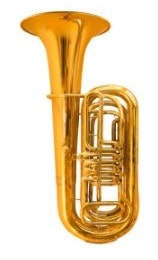
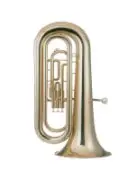
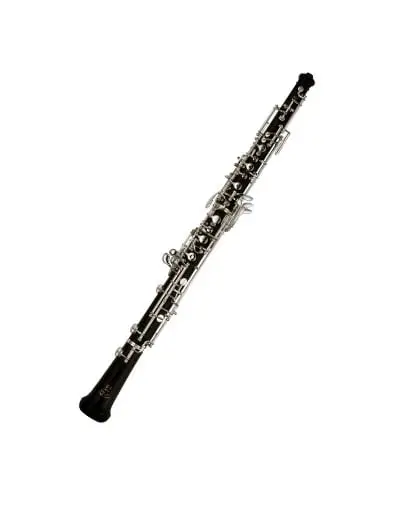
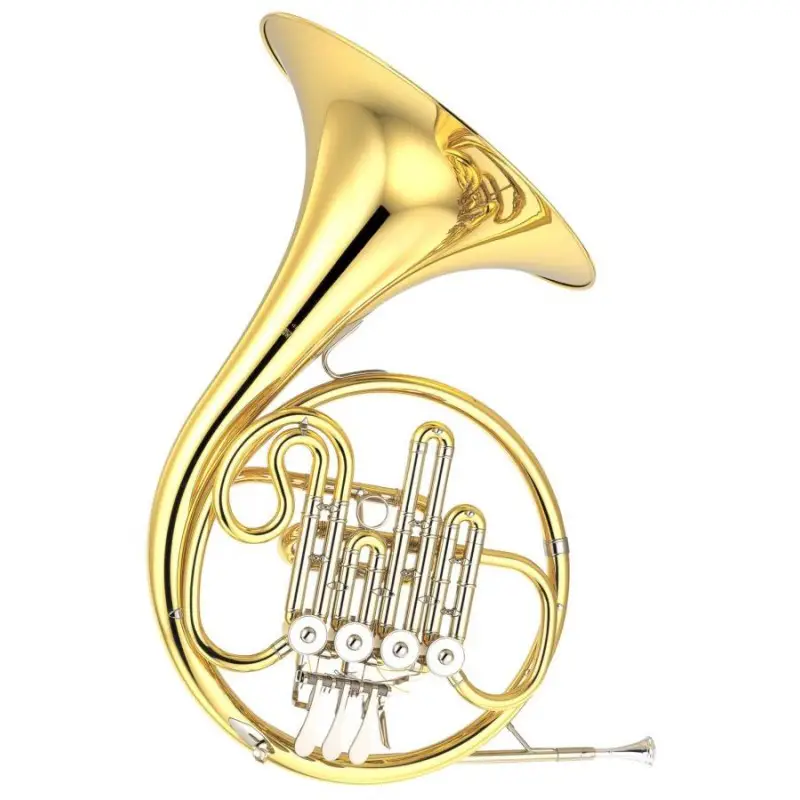
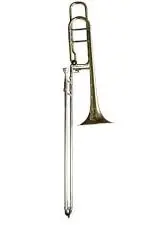
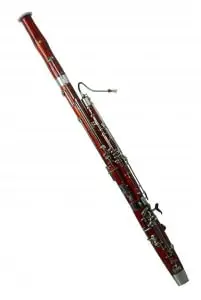
Playing multiple instruments may also increase your chances of winning a scholarship, though spectacular ability must be evident for at least one of them.
Why Are They Less Competitive for Earning Scholarships?
The reasons behind these high-ranking, low-competition instruments typically follow some patterns:
- The instruments are either unwieldy, more challenging to learn than popular instruments, less melodic (aiding the band’s bass line or harmony) than others or a combination of these.
- Reeds and valves and general maintenance may be costly, and many schools lack the resources to provide students with it all, the cost falling heavily on parents. The popularity contest amongst band instruments works in the favor of strategic scholarship pursuers, creating a relatively clear path of increasing chances of financial success.
- Concert bands may also require more of an instrument in their ensemble than others, further increasing demand. Competition for scholarships in instruments such as piano, flute, or saxophone is incredibly fierce, given how common they are. It isn’t impossible to find success in your scholarship search, but without an extreme level of technical and creative skill, colleges are far more likely to pass you by.
- Depending on the college’s reputation for its music program, competition can be moderate to intense. Small and/or private institutions may offer more scholarships than large and/or public universities.
Before Deciding on Band Instrument Scholarships – Recommendations
Beyond the factors mentioned above, as a rule of thumb, you should individually research the scholarship offerings of each college you’re considering.
But be sure to evaluate the costs and benefits of deciding on a college primarily for its ability to furnish you with band scholarships; there may still be more non-loan financial aid opportunities elsewhere.
Establish a clear idea of how big a role music will play in your future: will it become a career, a lifetime hobby, or a second job? With that vision in mind, you can proceed in recognizing where your priorities lie and selecting the right college for you.
Band Competitions for Scholarships
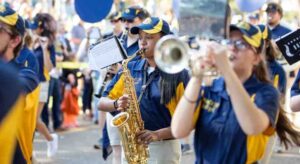
Winning individual or small ensemble awards in band competitions can make your scholarship applications more competitive. Some state or national competitions award their private scholarships to exemplary performers. This can offset choosing a college with fewer resources to allocate to its music department. Competition in private scholarships can be intimidating; apply to a handful of small (both in scope and award money) and larger programs.
Performance anxiety can be a major hindrance during these competitions, auditions, and other performances. Strive for solos and play for friends and family throughout the middle and high school years; the lower stakes allow for more easily building confidence in performing alone or in a small group.
This is great practice for collegiate performances, competitions, and coursework, while also preparing students for performance-based careers after college.
Letters of Recommendation for Band Scholarships
A letter of recommendation or two is often required for scholarships, which presents an opportunity for the student to provide evidence of their leadership roles, performance abilities, and/or tutelage of fellow students. Letters should be concise, but engaging.
The optimal letter of recommendation will establish not only the student’s musical abilities but their commitment to their instrument and total character. Thus, the writer should know the student well, ideally in contexts in and outside of the music room and for a period of a few years.
The obvious choices are school music teachers and private tutors. Long-term teachers can easily speak to dedication and musical ability, as well as the student’s growth over time. Leaders from music-related clubs and organizations like youth symphonies or church music groups would also make great choices and may allow for deeper character analysis.

When Should You Start Playing a Band Instrument for a College Scholarship?
In order to be placed in a college’s band or academic music program, unusual skill is necessary even with the most niche instruments; this takes time.
Early exposure to your chosen high-demand instrument is incredibly important for the student.
Music exposure can occur as early as infancy to the toddler years, followed by introducing open-ended exploration opportunities: a toy piano to develop an understanding of tones and instrument use, singing, and dancing with parents to develop an appreciation for rhythm and pitch.
Elementary school is a good target for more concrete instruction, with formal lessons beginning by the third or fourth grade, in some schools only in the fifth grade. Still, there is the possibility of starting by the age of five.
Child development experts have found (and found again, through additional corroborating research) that the ideal window for developing a knack for music is age zero to nine. The brain develops the sensory connections necessary for appreciating and understanding music during this time, enabling technical skills if properly nurtured.
That’s not to say that older children cannot start from scratch, as is the case in the American music education system. A casual, critical education in music can happen early on just by listening to the radio or music in general.
Limitations When Starting Early With a Band Instrument
Handling large instruments (like the ones that get the most scholarships) will be difficult for small children; earlier lessons would likely be limited to smaller or less complicated instruments.
However, thankfully there have been some improvements in the quality and diversity of lightweight plastic band instruments, allowing younger children to experience almost all types of typical band instruments these days, even the largest or heaviest ones.
Even with plastic band instrument alternatives, there is still a case of low supply for some instruments: considering the demand ratio, there is a less competitive advantage for those with the means to start their child early with formal music education, leveling the playing field in that respect.
Take care to evaluate your expenses and your or your child’s actual interest in playing. The process of learning an instrument well can be quite costly over time; even if he or she doesn’t play one of the most expensive band instruments. At some point, the money spent could surpass what is gained through scholarships.
Many of the top scholarship instruments require private lessons in addition to education through the school, particularly the oboe and bassoon. The interest level in playing the instrument will also have an impact on how well one learns.
A less dedicated student might waste the potential for another instrument or other extracurricular activities with similar scholarship opportunities.
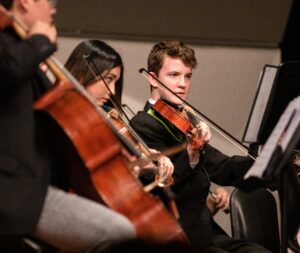
Final Considerations
The band scholarship journey is a long one, but it’s powered by a lifelong love of music.
Strategic planners may gain a leg up by selecting low-competition instruments, having early exposure to music and music education, and making connections with instructors and supervisors.
Students may be completely free from debt after graduation thanks to a full ride or a host of smaller scholarships, far ahead of the majority of U.S. college graduates.
Further, being a scholarship winner may open the door to exclusive organizations and career opportunities – the status serves as recognition of great skill and an ability to gather professional recommendations.
Whether the goal is to major in music or joins the marching band, scholarships serve as a reward for the years of dedication that music excellence requires.
What Are the Less Competitive Instruments for Scholarships?
The less competitive band instruments for getting scholarships are the tuba, euphonium, oboe, french horn, trombone, and bassoon.
